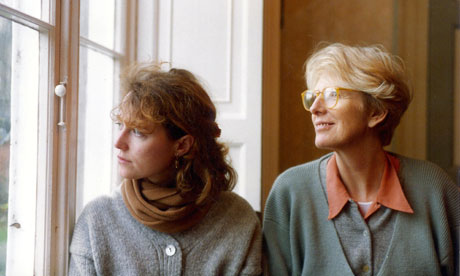
The words "just like mother used to make", or variations thereof, should be used with care. Time tends to burnish the memory of home cooking, with the result that even the most dreary bowl of macaroni cheese can come to seem, a decade or two on, like something out of Proust, its glorious once-tasted cheesiness as elusive as happiness, its soothing creaminess harder to recreate than an Olympic opening ceremony.
Lucy Boyd is not apt to use this phrase for the simple reason that she called her mother by her first name. But if she did, she would be on safer ground than most of us. Her mother, Rose Gray, who died in 2010, was an exceptional cook, the kind of person who could wander into her Italian garden, and come back half an hour later with enough wild ingredients to flavour not one, not even two, but three kinds of ravioli for dinner.
"She was so confident," says Boyd, over lunch at the River Café, the west London restaurant that Gray co-founded with Ruth Rogers, which turns 25 this year. "She knew that, mostly, a squeeze of lemon was enough, that the right ingredients would speak for themselves."
Wasn't this intimidating? No. For Boyd, talking about food was a way of being intimate with Rose.
"She wanted to know what we wanted to eat; she wanted suggestions. She would get excited, we would get excited, and then we were off." Cooking was not something one person did alone, away from everyone else. "Everyone got stuck in. On holiday, you would spend a whole day picking mushrooms, and in the evening we would all sit down together to do the prep."
She made sure, too, that her four children had exceptional – if slightly rarefied – survival skills. "When we left home, we knew how to make a chicken last for a week, and all the things you could do with a bag of dried porcini and boiling water."
Cooking, for Lucy, is a baton, to be passed down through the generations. "When I visit a supermarket, Rose is always in my mind. It's a physical thing. When I see something that's out of season, I think: no, no, no."
For breakfast, she and her daughters like to eat anchovies on toast, just as Rose did (Lucy's brother's first word was "anchovy"); they put lashings of chilli in their spaghetti sauce for the same reason. When Daisy, Lucy's eldest, went off to university, Rose gave her a set of heavy-based saucepans, all the better that she might make a sofrito (not for a Gray grandchild the tuna fish pasta bake that the rest of us lived on).
Boyd has a day job as head gardener at Petersham Nurseries, near Richmond. But she is also writing a cookbook inspired by Rose; for inspiration, she has the notebooks her mother kept, red leather and extremely detailed, and gifted to her only this morning by her stepfather.
I wonder if this is daunting; Rose wrote a few bestselling cookbooks (with Ruth Rogers) herself. But according to Lucy, it's her mother's style that worries her, not her reputation. "I feel slightly embarrassed about some of the recipes, in the sense that sometimes it's just a question of saying: put some good mozzarella on a piece of toast."
And then there's the question of what to call it. For ages it was going to be A Taste of Rose. Now she's leaning towards A Pinch of Rose.
"My mother had this way of cooking. You can see it in the chefs here, because it's one of the things she passed on. It was an instinctive thing." Her hands nip delicately at the air. "Pinch, pinch, pinch… that's the way she cooked. Salt, pepper, chilli, lemon."
Her voice trails off. I'm sure she misses her mother – so sure, in fact, that I've no need to ask her if she does. But there must be comfort in the fact that Rose's spirit endures in this dining room; on the pass, I can see a whole row of chefs, each one of them pinching parsley like there's no tomorrow.

